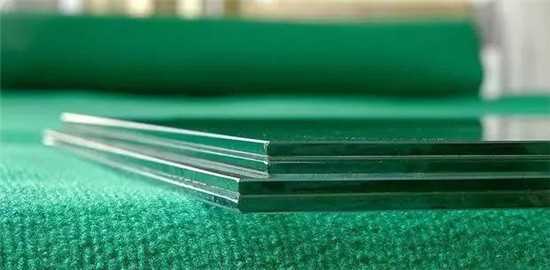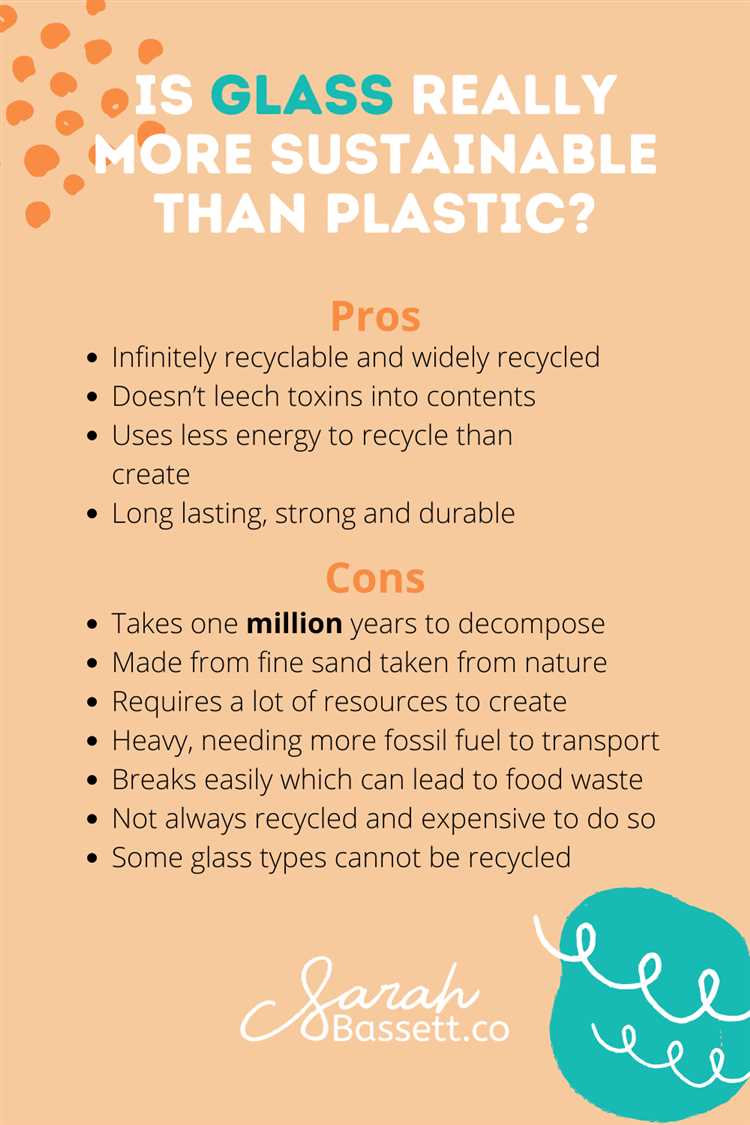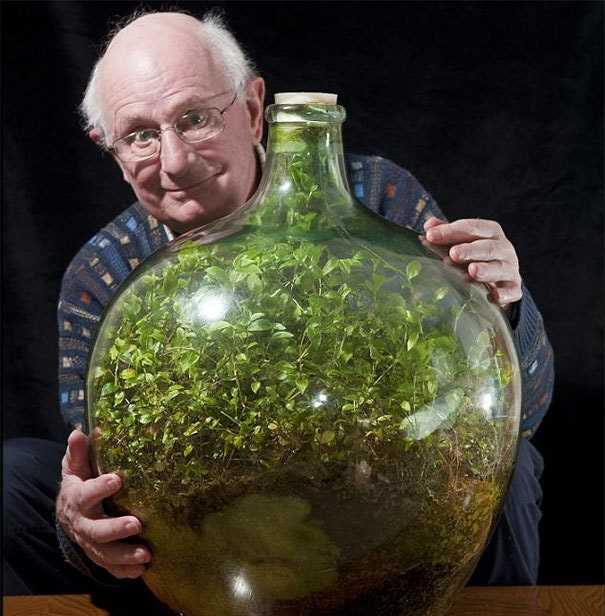
Glass is a fascinating material that has been around for thousands of years. From ancient Roman artifacts to modern skyscrapers, glass has played a significant role in our history and continues to be an essential part of our everyday lives. One of the most intriguing aspects of glass is its longevity – it can last indefinitely under the right conditions.
So, what makes glass such a durable material? One of the key factors is its chemical composition. Glass is made of silica, which is a naturally occurring mineral. This means that it is resistant to many environmental factors that can cause other materials to deteriorate over time. Additionally, glass can withstand high temperatures, making it an excellent material for use in ovens, stovetops, and other heat-emitting appliances.
Another reason why glass lasts indefinitely is its physical properties. Unlike metals, which can rust or corrode, glass is not prone to these kinds of deterioration. It is not affected by water or air, which means that it will not oxidize or degrade over time. This makes glass an ideal choice for storing food and beverages, as it will not interact with or contaminate the contents.
Furthermore, glass is a highly recyclable material, which adds to its sustainability and longevity. It can be melted down and reshaped into new objects without losing its quality or structural integrity. This means that even if a piece of glass does break or become damaged, it can be recycled and reused, reducing waste and extending its lifespan.
In conclusion, the chemical composition, physical properties, and recyclability of glass are the key factors that contribute to its longevity. With proper care and maintenance, glass can last indefinitely, making it an environmentally friendly and sustainable material choice for a wide range of applications.
- The Composition of Glass
- The manufacturing process
- The non-crystalline structure
- The Strength of Glass
- The Durability of Glass
- The Chemical Stability of Glass
- The Role of Surface Finishes
- Conclusion
- The Resistance to Environmental Factors
- The Potential for Recycling
- The Benefits of Glass Recycling
- The Challenges
- Q&A:
- Why does glass last indefinitely?
- What materials are used to make glass last indefinitely?
- How does the structure of glass contribute to its longevity?
- What factors can cause glass to deteriorate?
- Can glass be recycled indefinitely?
- Can glass last forever?
The Composition of Glass

Glass is an incredibly durable and long-lasting material that can last indefinitely under the right conditions. Understanding the composition of glass is key to understanding its longevity.
Glass is primarily made up of three main ingredients: silica, soda ash, and lime. Silica, which is found in sand, is the main component of glass, making up about 70-75% of its composition. Soda ash, also known as sodium carbonate, is added to lower the melting point of silica and enhance its workability. Lime, or calcium oxide, is added to stabilize the glass and improve its resistance to weathering.
In addition to these main ingredients, glass may also contain small amounts of other materials for specific purposes. Various metal oxides can be added to glass to change its color, such as iron oxide for green or brown glass and cobalt oxide for blue glass. Boron oxide can be added to make the glass resistant to high temperatures, while alumina can increase its strength.
The manufacturing process
The composition of glass is determined during the manufacturing process. First, the raw materials are mixed together and heated in a furnace until they melt into a liquid state. The molten glass is then shaped and molded into its desired form, whether it be bottles, windows, or other glass products. Finally, the glass is cooled down slowly to relieve any internal stresses and ensure its long-term durability.
The non-crystalline structure
One of the unique properties of glass is its non-crystalline structure. Unlike other materials, glass does not have a regular repeating pattern of atoms, which gives it its characteristic transparency. The random arrangement of atoms in glass gives it its amorphous nature, making it more resistant to cracking and breaking.
Overall, the composition and manufacturing process of glass play a crucial role in its ability to last indefinitely. By understanding the materials that make up glass and how they are processed, scientists and manufacturers can continue to improve upon this remarkable material and its longevity.
The Strength of Glass
Glass is known for its unique characteristics and versatility, but one of its most impressive attributes is its strength. Despite its delicate appearance, glass is actually a remarkably strong material.
One of the key factors that contribute to the strength of glass is its molecular structure. Glass is made up of a highly organized arrangement of silicon and oxygen atoms, creating a network of linked molecular chains. This molecular structure gives glass its rigidity and allows it to withstand significant amounts of force.
Additionally, the manufacturing process of glass plays a crucial role in enhancing its strength. By carefully controlling the cooling rate during production, manufacturers can induce compressive or tensile stress within the glass. This creates a state of equilibrium within the molecular structure, making it highly resistant to external stresses.
Furthermore, the addition of certain minerals or chemicals to the glass composition can also significantly increase its strength. For example, the introduction of alumina or boron oxide can enhance the glass’s resistance to scratching and impact.
Another important factor to consider is the thickness of the glass. Thicker glass naturally has more strength than thinner glass due to a greater amount of material being present to resist opposing forces.
While glass may be strong in certain aspects, it is important to remember that it is not invulnerable to all types of stress. Extreme temperature changes, for example, can cause glass to expand or contract, potentially leading to cracks or fractures. Similarly, excessive force or impact can also cause glass to break.
In conclusion, the strength of glass lies in its molecular structure, the manufacturing process, the addition of certain minerals or chemicals, and the thickness of the glass. Understanding these factors helps us appreciate the durability and longevity of glass in various applications.
The Durability of Glass
Glass is known for its exceptional durability and long-lasting properties. Unlike other materials, glass is resistant to corrosion, making it a highly durable option for various applications.
One of the main reasons why glass can last indefinitely is its inherent chemical composition. Glass is made from a combination of silica, soda ash, and other minerals, which are melted and then cooled rapidly to form a solid substance. This unique manufacturing process creates a material with a non-crystalline structure, giving it the strength to resist degradation over time.
In addition, glass is impermeable to moisture and gases, preventing chemical reactions and preventing corrosion. This property makes glass an ideal choice for storing liquids and food as it does not interact with the contents, ensuring their integrity and safety.
Furthermore, glass exhibits excellent thermal stability, allowing it to withstand extreme temperature changes without breaking or warping. This property makes it an ideal material for windows and other architectural applications, as it can withstand intense heat from the sun or freezing temperatures without compromising its structural integrity.
Moreover, advances in glass manufacturing techniques have further enhanced its durability. Tempered glass, for instance, undergoes a process of controlled heating and rapid cooling, making it several times stronger than regular glass. This type of glass is highly resistant to impact and can withstand high-pressure situations, ensuring its longevity.
In conclusion, the durability of glass can be attributed to its unique chemical composition, impermeability, thermal stability, and continuous advancements in manufacturing techniques. These characteristics allow glass to maintain its integrity and strength, enabling it to last indefinitely in various applications.
The Chemical Stability of Glass

Glass is known for its exceptional chemical stability, which is one of the key factors in its ability to last indefinitely. This stability is primarily due to the unique molecular structure and strong bonding between the atoms in glass.
The main component of glass is silica (SiO2), which forms a network of silicon-oxygen (Si-O) bonds. These bonds are highly stable and resistant to chemical reactions with most substances. This means that glass is not easily corroded or degraded by exposure to acids, bases, or other chemicals.
In addition to its strong Si-O bonds, glass also contains other elements that contribute to its chemical stability. For example, the addition of alumina (Al2O3) to the glass composition increases its resistance to alkaline substances, while the incorporation of boron oxide (B2O3) enhances its resistance to thermal shock.
The Role of Surface Finishes
The chemical stability of glass can be further enhanced by applying surface finishes or coatings. These finishes create an additional barrier between the glass and its environment, protecting it from chemical interactions.
One common surface treatment is the application of a thin layer of metal oxide, such as titanium dioxide (TiO2) or silicon dioxide (SiO2), through processes like sputtering or chemical vapor deposition. These metal oxide coatings not only provide an extra layer of protection but also improve the glass’s resistance to scratches and abrasion.
It is important to note, however, that even with its exceptional chemical stability, glass is not entirely immune to degradation over time. Moisture, for instance, can penetrate the surface of glass and react with certain components, leading to the formation of leachates or the development of a hazy appearance.
Conclusion
In conclusion, the chemical stability of glass is a vital characteristic that allows it to last indefinitely. The strong bonding between its atoms and the composition of various elements contribute to its resistance to chemical reactions. Surface finishes and coatings can further enhance its chemical stability and protect it from degradation. Despite its remarkable stability, glass still requires proper maintenance to prevent potential deterioration over time.
The Resistance to Environmental Factors

Glass is known for its remarkable resistance to environmental factors, making it last indefinitely. One of the key reasons for this durability is its resistance to moisture. Unlike other materials, glass does not absorb water or react with it, preventing the formation of rust, mold, or other degradation caused by moisture.
In addition to moisture resistance, glass also demonstrates excellent resistance to extreme temperatures. It can withstand high heat without melting or deforming, making it suitable for use in various applications such as ovenware and laboratory equipment. Similarly, glass can also withstand freezing temperatures without cracking or shattering, making it suitable for use in windows and other outdoor applications.
Furthermore, glass has a high resistance to chemicals, making it an ideal choice for storing and transporting various substances. Unlike plastics or metals, glass does not react with most chemicals, ensuring that the integrity and quality of the stored materials are maintained over time.
Moreover, glass is highly resistant to UV radiation. It does not degrade or discolor when exposed to sunlight, making it a popular choice for windows and other outdoor structures. The resistance to UV radiation also makes glass a suitable material for preserving valuable artwork, as it helps to minimize damage caused by prolonged exposure to sunlight.
- Glass has a low thermal expansion coefficient, meaning it does not expand or contract significantly with temperature changes. This property contributes to its resistance to cracking and fracturing even when exposed to rapid temperature fluctuations.
- Due to its nonporous nature, glass is resistant to stains and odors. This makes it particularly suitable for use in food and beverage containers, as it does not absorb unwanted flavors or odors.
- Glass is also resistant to physical impact and mechanical stress. It is a durable material that can withstand the forces exerted during everyday use, making it a reliable choice for products that require high durability.
- Finally, glass is an environmentally friendly material. It is recyclable and can be melted down and molded into new glass products, reducing the need for raw materials and energy consumption.
In conclusion, glass possesses a remarkable resistance to environmental factors, including moisture, extreme temperatures, chemicals, UV radiation, and physical impact. These properties contribute to its longevity, making it a sustainable and durable material that can last indefinitely.
The Potential for Recycling
Glass is a highly recyclable material, with the potential to be recycled indefinitely. Unlike other materials, such as plastic or paper, glass does not degrade during the recycling process, meaning it can be recycled over and over again without losing its quality. This makes glass a sustainable and environmentally friendly choice.
When glass is recycled, it is crushed into small pieces called cullet. This cullet is then melted down and used to make new glass products. The process of recycling glass requires less energy compared to producing glass from raw materials, such as sand, soda ash, and limestone. In fact, recycling one ton of glass saves over a ton of natural resources and reduces CO2 emissions by around 315 kilograms.
The Benefits of Glass Recycling
There are several benefits to recycling glass. Firstly, it reduces the amount of waste sent to landfills. Glass takes thousands of years to decompose in a landfill, so by recycling it, we can significantly reduce the volume of waste and the environmental impact associated with landfilling.
Secondly, glass recycling conserves natural resources. By reusing the cullet, we reduce the need for mining and extracting raw materials. This helps to protect natural habitats, preserve landscapes, and reduce the energy required for resource extraction.
Lastly, glass recycling helps to reduce greenhouse gas emissions. As mentioned earlier, the recycling process requires less energy compared to producing new glass. This means fewer fossil fuels are burned, resulting in fewer greenhouse gases being released into the atmosphere.
The Challenges
While glass recycling offers many benefits, there are also challenges associated with the process. One of the main challenges is the collection and sorting of glass. Unlike other recyclable materials, glass is not always collected separately and can be mixed with other waste streams, making it difficult to recycle. Improving collection and sorting systems can help overcome this challenge.
Another challenge is the presence of contaminants in recycled glass. When glass is recycled, it can become contaminated with other materials, such as ceramics, metals, or plastics, which can degrade the quality of the recycled glass. Implementing better sorting and quality control measures can help address this issue.
In conclusion, glass has the potential to be recycled indefinitely, making it a sustainable and environmentally friendly material. By recycling glass, we can conserve natural resources, reduce waste sent to landfills, and lower greenhouse gas emissions. While there are challenges associated with glass recycling, they can be overcome through improved collection and sorting systems, as well as quality control measures.
Q&A:
Why does glass last indefinitely?
Glass lasts indefinitely due to its composition and physical properties that make it resistant to corrosion and decay.
What materials are used to make glass last indefinitely?
Glass is composed primarily of silica, which is a highly stable and durable material. Other additives may be used to enhance certain properties of the glass, such as strength or clarity.
How does the structure of glass contribute to its longevity?
Glass has an amorphous structure, meaning it lacks long-range order in its atomic arrangement. This structure gives glass its unique properties, including its durability and resistance to degradation over time.
What factors can cause glass to deteriorate?
While glass is highly resistant to corrosion and decay, certain factors can still cause it to deteriorate. These factors include exposure to extreme temperatures, chemical reactions, or physical damage from pressure or impact.
Can glass be recycled indefinitely?
Yes, glass is a highly recyclable material. It can be melted down and reformed into new glass products repeatedly without any loss in quality or properties.
Can glass last forever?
Glass is a material that lasts indefinitely if it is not broken or shattered.